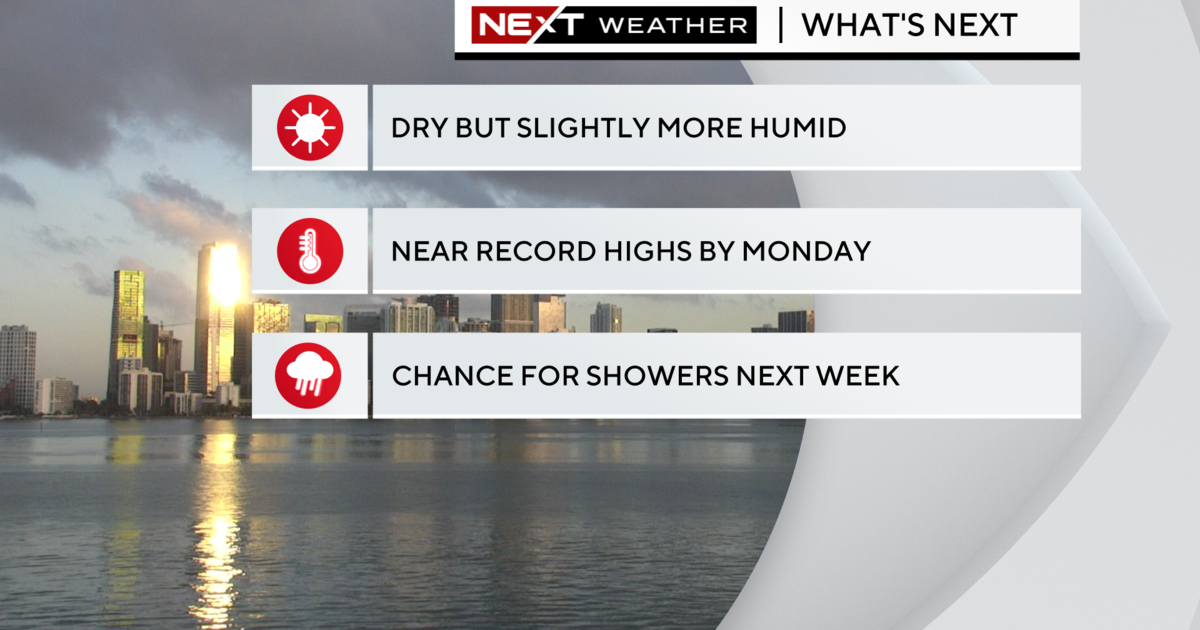Winter A Tough Time For Fla. Tropical Fish Farmers
LAKELAND (CBSMiami/AP) — Florida's tropical fish farmers are hoping Old Man Winter doesn't wreak havoc on their industry again this year.
At Imperial Tropicals, one of central Florida's largest ornamental fish farms, things are bit tense these days due to the plunging temperatures. It will be days, if not weeks, before farmer Fran Drawdy discovers how the recent cold snap will affect her fish.
Her millions of platies, mollies and guppies in outdoor ponds could die quickly from the drastic temperature change or they could fall sick and linger from stress or a fungus. It went from 80 degrees on Christmas to 20 degrees two weeks later.
Almost all the nation's domestically-raised tropical and ornamental fish come from Florida, and when cold weather strikes the results can be devastating.
"We have tremendous challenges with the cold," said Drawdy, who has owned the central Florida farm with her family for 40 years. "Our prayer was that we wouldn't face that this year. We were just really starting to recover."
Drawdy is referring to 2010, when many Florida ornamental fish farmers lost between 80 and 100 percent of their stock. That year, temperatures stayed below 50 for 11 days straight in January and then another cold snap in December struck the area.
"The last three winters in a row it seems like we have been just clobbered," said David Boozer, executive director of the Florida Tropical Fish Farms Association, a group that counts 231 farmers as members.
The Sunshine State's fish farms are not as well known, or as lucrative, as oranges, strawberries or tomatoes. But the sales figures are still substantial and chances are, if you've bought a guppy at a large chain store, it's from Florida. The state's tropical fish sales were $32.2 million in 2007, the last year statistics were gathered.
Hillsborough and Polk counties in central Florida sold the most fish, although farmers are located in some South Florida counties as well. The industry started in Miami in the 1920s, and farmers migrated north as land there became more expensive. At one time, farmers say, tropical fish were the most shipped cargo from Tampa International Airport; today it's industrial and commercial machinery.
Tropical fish farmers usually keep dozens, if not hundreds, of small outdoor ponds on their property. Some, including Drawdy, also have greenhouses with concrete tanks inside and special breeding areas. Although the greenhouses are covered and farmers place plastic sheeting over the ponds when it gets cold, the fish — and profits — suffer if the temperatures drop too low for too long.
During the 2010 freeze, it took Imperial Tropicals nearly a year to replenish its stock because a lot of the company's breeding fish were also wiped out from the cold.
"It takes so long to recover," Drawdy said.
The recent and unusually cold winters are only part of the industry's problem. A bad economy, imports from Asia and the ubiquity of the Internet all play a role in why there are hundreds fewer fish farmers today than 20 years ago.
"Kids a lot of times aren't looking at an aquarium anymore," shrugged Kevin Kramer, the breeding manager at Imperial Tropicals. "They're looking at videogames."
Imported fish from Asia have taken over the consumer market, said Boozer. Labor in countries like Malaysia and Thailand is cheaper and it's also warmer — Florida farmers' biggest competition is from Southeast Asia, where the temperatures never fall below 80 degrees. There are also more environmental regulations for U.S. farmers; Drawdy said her farm is inspected by the state Department of Agriculture and local water management authorities. Keeping up with the regulations can raise farming cists, she said.
Also, since there are fewer small pet stores of fish hobbyist shops, large chain stores are where most people buy their fish. Those stores carry fewer varieties and can set prices low.
Farmers must currently monitor which varieties are popular and breed accordingly. For Drawdy, selling to distributors quickly is key — it's not like she can just hang on to the fish until they sell.
"These fish won't sit," she said. "We have to sell them or they get too big or they die."
Although Drawdy watched many of her fellow farmers sell their land during the real estate boom of the early 2000s, she is determined to continue.
"This is what we know," she said. "This has been our family's life."
(TM and © Copyright 2012 CBS Radio Inc. and its relevant subsidiaries. CBS RADIO and EYE Logo TM and Copyright 2012 CBS Broadcasting Inc. Used under license. All Rights Reserved. This material may not be published, broadcast, rewritten, or redistributed. The Associated Press contributed to this report.)



